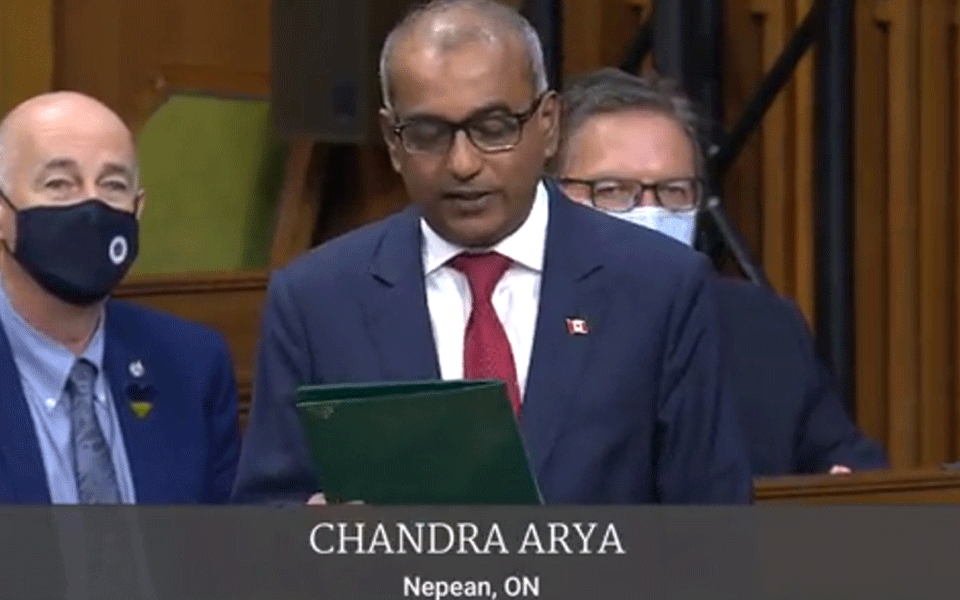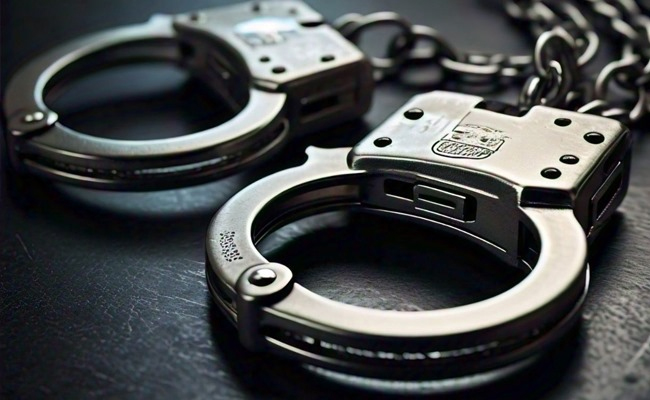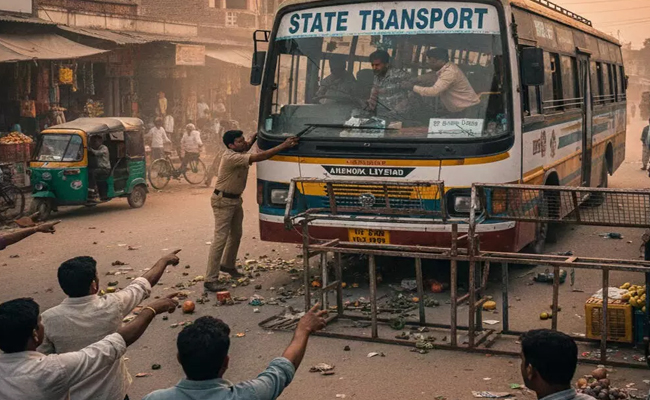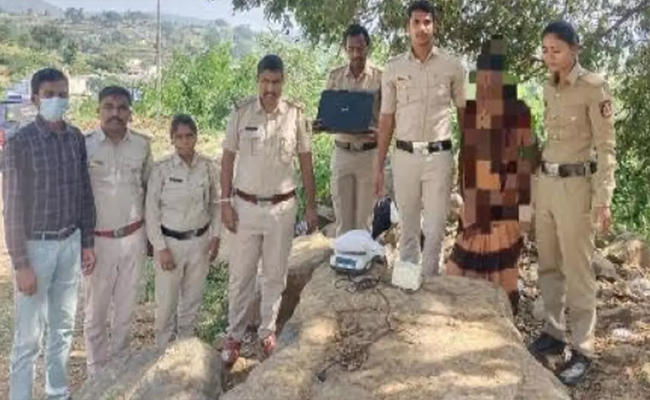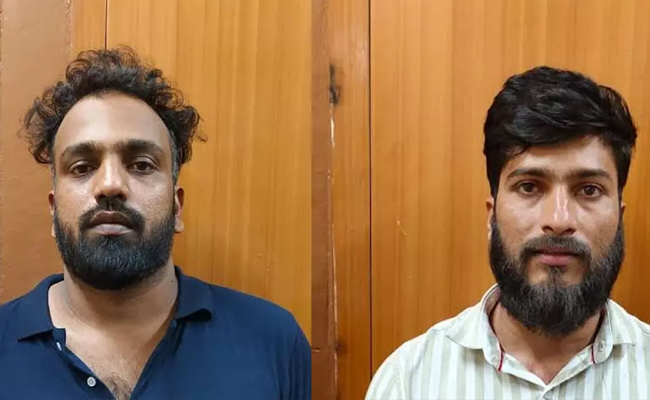Bengaluru(PTI): A speech in Canada's Parliament by a Canadian MP in his mother tongue Kannada has gone viral on the social media, earning him praise for his love towards his native language.
Chandra Arya, a Member of Parliament from Nepean, hails from Dwaralu, a small village in Sira Taluk of Tumakuru district in Karnataka.
"I spoke in my mother tongue (first language) Kannada in Canadian parliament. This beautiful language has (a) long history and is spoken by about 50 million people. This is the first time Kannada is spoken in any parliament in the world outside of India," Arya has tweeted with a minute-long video of his speech in Kannada.
His speech received a standing ovation from some of his Parliament colleagues.
"Respected Speaker, I'm happy for having got an opportunity to speak in Kannada in Canada's Parliament. It is a proud moment for 5 crore Kannadigas that a man born in Sira Taluk's Dwaralu village in Tumkur (Tumakuru) District from an Indian state of Karnataka, has been elected as Member of Parliament in Canada has spoken in Kannada," he said in his Kannada speech.
Noting that Canada's Kannadigas in 2018 had celebrated Kannada 'Rajyotsava' in Canada's Parliament, he said, "I want to end my statement with (a) few words of the song written by RashtraKavi Kuvempu and sung by Natasaarvabhowma Dr Rajkumar-Elladaru Iru Enthadaru Iru, Endendigu Nee Kannadavaagiru (Wherever you stay, however you are, always be a Kannadiga). Thank You Speaker."
Son of retired Commercial Tax Assistant Commissioner K Govinda Iyer, Chandra Arya is a Liberal Party politician. Appreciating Arya's speech, Karnataka Chief Minister Basavaraj Bommai said he has spread Kannada's quintessence at the world stage.
"Heartfelt compliments to Chandra Arya for proving that however big one may grow in his life, he should always remember his roots. Elladaru Iru Enthadaru Iru, Endendigu Nee Kannadavaagiru," he tweeted.
Minister for Large and Medium-scale Industries Murugesh R Nirani said, "It is an absolute honour to see the language of our land, Kannada being spoken in the Canadian Parliament. It fills us all with immense pride."
Karnataka Congress President D K Shivakumar said, "It makes me happy to see our great Kannada language spoken in the Canadian parliament. A great idea by Sri Chandra Arya. Kannadigas across the world must fly high the flag of our mother tongue."
Arya had recently urged the Canadian people and the government to recognise the difference between the 'swastika', an ancient and auspicious symbol for Hindus and the 20th century Nazi symbol 'Hakenkreuz', pointing out that there is no similarity between the two.
I spoke in my mother tongue (first language) Kannada in Canadian parliament.
— Chandra Arya (@AryaCanada) May 19, 2022
This beautiful language has long history and is spoken by about 50 million people.
This is the first time Kannada is spoken in any parliament in the world outside of India. pic.twitter.com/AUanNlkETT
ತುಮಕೂರು ಜಿಲ್ಲೆಯ, ಶಿರಾ ತಾಲೂಕಿನ ದ್ವಾರಾಳು ಗ್ರಾಮದ ಕನ್ನಡಿಗ ಚಂದ್ರ ಆರ್ಯ @AryaCanada ಕೆನಡಾ ದೇಶದ ಸಂಸತ್ತಿನ ಪ್ರತಿನಿಧಿಯಾಗಿ, ತಮ್ಮ ಮೊದಲ ಭಾಷಣವನ್ನು ಕನ್ನಡದಲ್ಲಿಯೇ ಮಾತನಾಡುವ ಮೂಲಕ ಕನ್ನಡದ ಸೊಗಡನ್ನು ಅಂತಾರಾಷ್ಟ್ರೀಯ ಮಟ್ಟದಲ್ಲಿ ಮೊಳಗಿಸಿದ್ದಾರೆ. ಮನುಷ್ಯ ತಾನು ಎಷ್ಟೇ ಎತ್ತರಕ್ಕೆ ಹೋದರೂ,
— Basavaraj S Bommai (@BSBommai) May 20, 2022
1/2 pic.twitter.com/BChm8ZhFSO
It makes me happy to see our great Kannada language spoken in the Canadian parliament. A great idea by Sri Chandra Arya. Kannadigas across the world must fly high the flag of our mother tongue.@AryaCanada https://t.co/ZXtTgbPEEn
— DK Shivakumar (@DKShivakumar) May 20, 2022
"ಎಲ್ಲಾದರೂ ಇರು, ಎಂತಾದರೂ ಇರು, ಎಂದೆಂದಿಗೂ ನೀ ಕನ್ನಡವಾಗಿರು"
— Dr. Ashwathnarayan C. N. (@drashwathcn) May 20, 2022
ಕೆನಡಾದ ಸಂಸತ್ತಿನಲ್ಲಿ ಕನ್ನಡದ ಕಂಪು ಮೊಳಗಿಸಿದ ಅಲ್ಲಿನ ಸಂಸದರಾಗಿರುವ ಹೆಮ್ಮೆಯ ಕನ್ನಡಿಗ ಶ್ರೀ @AryaCanada ಅವರ ಮೂಲಕ ಪ್ರತಿಧ್ವನಿಸಿದ ಈ ಕವಿವಾಣಿ ಎಂದೆಂದಿಗೂ ಪ್ರಸ್ತುತ!
ಕನ್ನಡ ಕಸ್ತೂರಿಯ ಪರಿಮಳವನ್ನು ಪಸರಿಸಿದ ತಮಗೆ ಮನಃಪೂರ್ವಕ ಅಭಿನಂದನೆಗಳು. https://t.co/Ms8JRcap6x
Let the Truth be known. If you read VB and like VB, please be a VB Supporter and Help us deliver the Truth to one and all.
Bengaluru: Vidyaranyapura police have arrested four persons, including a man posing as a Police Sub-Inspector (PSI), for allegedly breaking into a house, threatening the occupants, and extorting money while wearing police uniforms.
The arrested accused have been identified as Mallikarjuna, Pramod, Vinay, and Hrithik.
Police said the accused had hatched a plan to pose as police personnel, conduct fake raids, and extort money from residents by intimidation.
ALSO READ: Bantwal police arrest two men for illegal sale of narcotics, seize two vehicles, 810 gm ganja
According to the police, Mallikarjuna had failed the PSI examination twice and later falsely projected himself as a PSI. He allegedly conducted photo shoots in his hometown, Siraguppa, wearing a police uniform, baton, cap, and shoes, claiming to be serving as a PSI in Bengaluru.
On December 7, the four accused allegedly went to the house of Naveen in the Vidyaranyapura limits, threatened him with a stick and an iron rod, and claimed they had information that he was selling ganja. Under the pretext of searching, they allegedly extorted ₹87,000 through bank transfer, ₹53,000 in cash kept in the house, and ₹2,000 from his wallet.
Following Naveen’s complaint, Vidyaranyapura police registered a case and launched an operation, leading to the arrest of all four accused. Police have seized ₹45,000 in cash and the car used to commit the crime.
Further investigation is underway.

